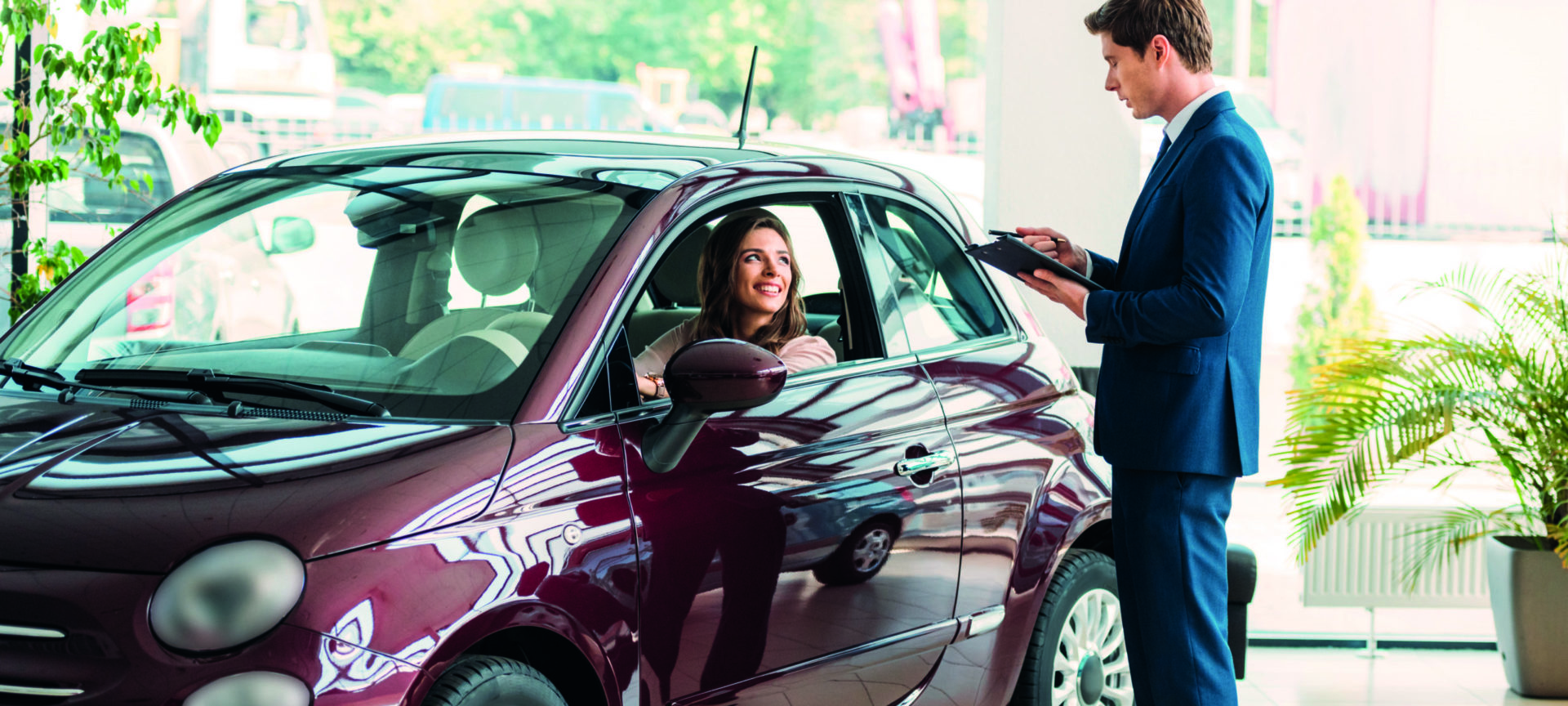For many a used car is a natural choice as it’s a cheaper alternative than a new one. Generally they lose value more slowly than a brand new car and you may be able to buy it outright. But things aren’t quite so clear cut if you start to consider servicing, any unexpected repairs, and the cost of finance if you (or your parents) take out a loan to pay for the car.
Can I afford a new car?
There are finance products aimed at young drivers, such as Marmalade’s Cars for Young Drivers or Peugeot’s Just Add Fuel with Telematics. These bundle the cost of the car and insurance into a single monthly payment. Compare the combined cost of buying and insuring an older second-hand car with the monthly payment for this kind of new car finance deal, and you could be surprised…
What about running costs?
You can expect to pay less to fuel a new car than one that’s, say, five years old. Choosing a new car should protect you against unexpected bills, too, as any faults should be covered under warranty. Some finance products cover the cost of routine servicing as well.
How about a nearly new car?
A car that’s almost new (say, less than a year old) can be a good buy, saving thousands over the list price of a new model while still having most of the car’s warranty left to run. Don’t assume a nearly new car is always cheaper, though – if a new car is offered with a low-rate or 0% finance deal, it could actually work out cheaper in the long run to buy brand new rather than nearly new.
So, should I buy new?
A quality used car will normally work out cheaper overall, but don’t assume that’s the case until you’ve checked how much you would pay to buy a new car on finance – especially if the finance deal includes the cost of insurance.

But what if I want to buy used?
First thing is to ensure you check the car over –
- Look for bodywork damage. Poor panel fit suggests crash repairs.
- Have the tyres worn evenly or are they bald? Uneven wear suggests poorly aligned tracking (usually easily sorted) but could be something more serious.
- Does the chassis number (usually at the base of the windscreen on the passenger side) match the one on the registration document? Also check the engine number, which is usually on the top of the block, down the one side.
- Are all the keys available? Think carefully about buying a car without a spare. Lose the only key and you may have to have everything reprogrammed – which can cost hundreds of pounds.
- Is the interior undamaged, along with all the glass? Are there stickers on the windows to cover an old registration number etched into the glass?
- Have the steering wheel and gear knob been worn smooth? Does this tally with the recorded mileage?
- Do the speedo digits line up properly? Are the old MOTs to hand? Does the mileage recorded on these ties in with what’s displayed?
- Check for rust that’s been painted over, plus filler in the wheel arches.
- Ensure all the electrics work – check everything.
Take a test drive
Start the car from cold, and make sure it ticks over happily. Let it warm up then take it for a good run. Check for a smoky exhaust, ensure there’s no misfiring (that the engine pulls cleanly) and listen for any untoward noises. Also, feel for pulling to one side under braking. Other issues could include a worn clutch.
Check the paperwork
Make sure all the paperwork is in order. The key documents you need are:
- Service history: for proof of regular servicing and to see if the mileage is correct.
- Tax: When a car is sold, the vendor has to cash in the car tax, so you’ll have to buy your own. Current rates are listed at gov.uk/vehicle-tax-rate-tables – the DVLA no longer issues tax discs though.
- Registration document or V5C: This tells you the basics about the car, such as how many owners it’s had and who it’s currently registered to. The person named on this form isn’t necessarily the legal owner of the car though. Don’t buy a car without a V5C and make sure it’s genuine by looking for the watermark.
- MOT: If a car has no MOT it can’t be taxed, and it probably isn’t roadworthy.
Doing the deal
Your goal is to pay less than the asking price. Any seller should set the price above what they’re prepared to accept – so don’t pay a penny more than you have to. Use any minor faults you discover when checking the car over to chip away at the price.

Should I buy an electric car?
Sales of electric cars are booming, and the choice of different makes and models has never been wider. Electric cars are steadily becoming more affordable, and there’s a growing number of EVs (electric vehicles) on the used market.
How much do they cost?
Our current favourite, the Renault Zoe, costs from £26,495, after the plug-in car grant.
What’s the plug-in car grant?
The plug-in car grant (PICG) takes £3000 off the price of a zero-emission electric vehicle.
How about a second-hand electric car?
There are more and more to choose from. You should be able to find a used Renault Zoe for £6000-£7000, for example.
Are they difficult to drive?
No. In fact they are extremely easy as they’re all automatics. The pedal on the right makes an EV go, the pedal on the left makes it stop. Simple.
What about recharging?
It really helps if you have a driveway or garage so you can install a charging point at home. Charging times vary from model to model but plugging a car in overnight should be enough for a full recharge.
What about public charging?
Some say the charging infrastructure isn’t sufficient, but did you know there are now more electric charging locations than fuel stations?
How much does it cost to charge an electric car?
A lot less than the price of refuelling a petrol or diesel car. According to the charging network, Podpoint, topping up a 60kWh battery for a range of around 200 miles costs £8.40, based on charging at home at a price of 14p per kWh. Enough petrol to go 200 miles in a car that achieves 40mpg would cost more like £29. So lower fuel costs will help make up for the higher price of the car itself.
